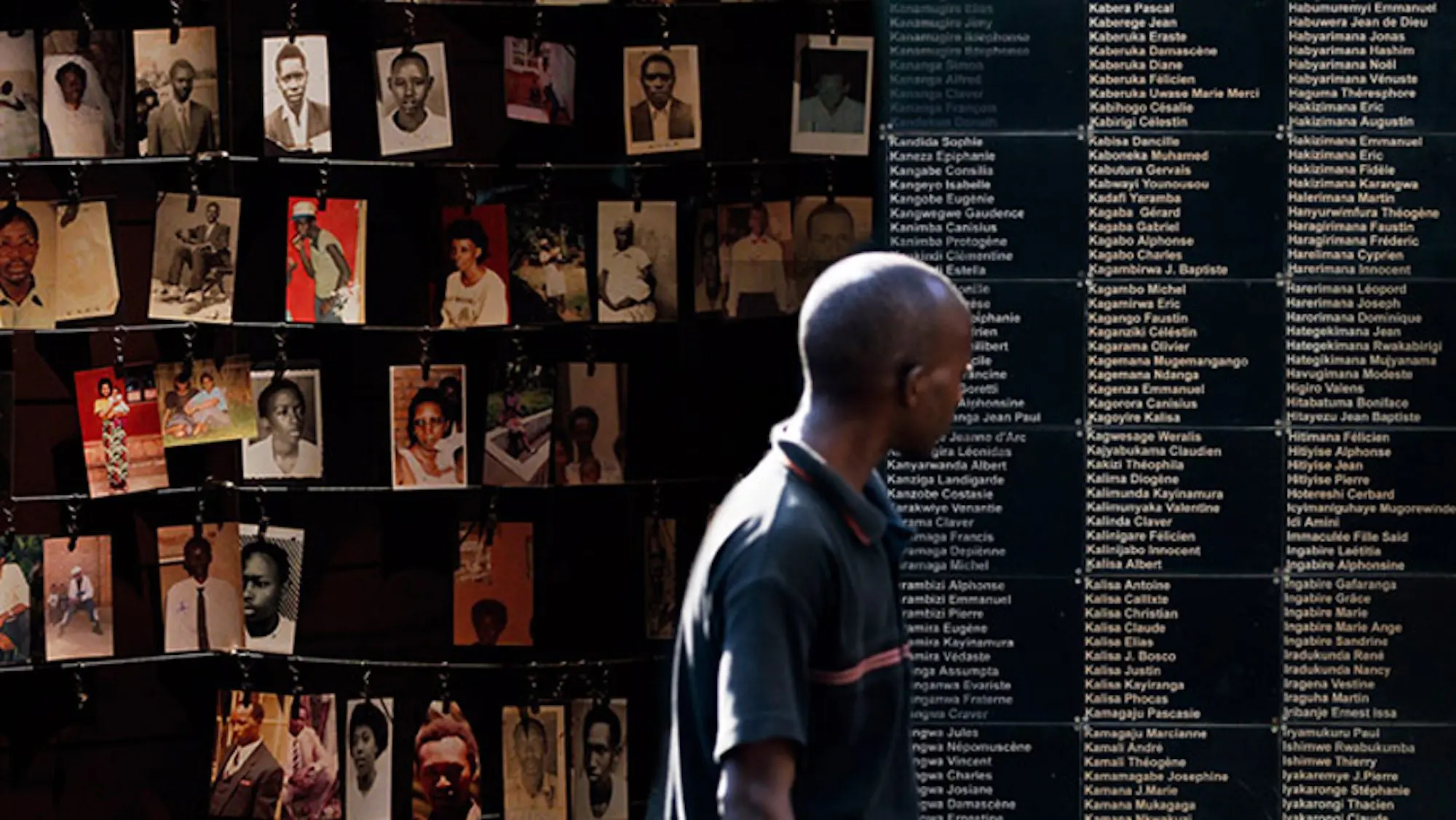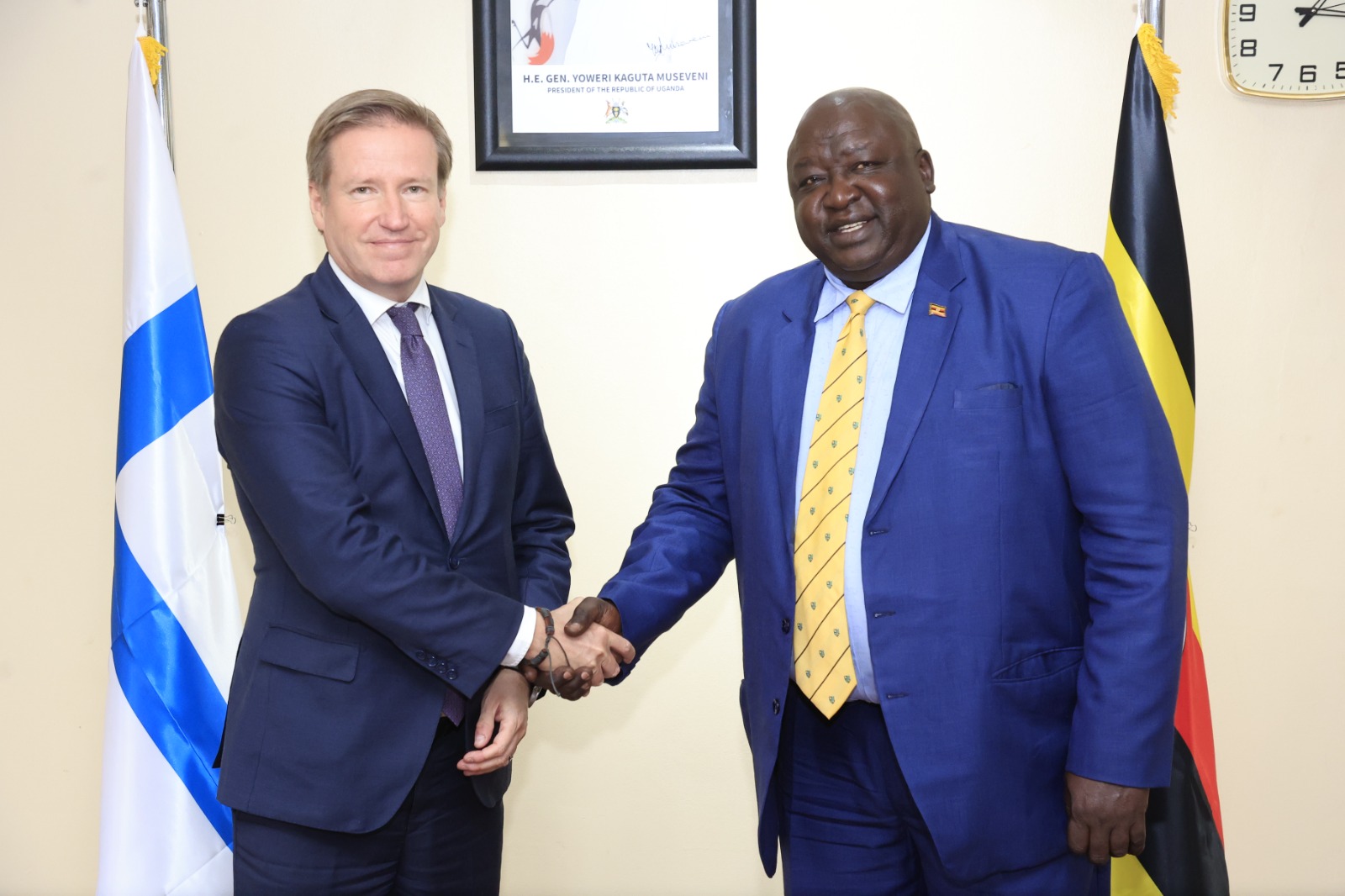Rwandan Genocide suspect arrested in US

Eric Tabaro Nshimiyimana faces charges of decades-long scheme to conceal his involvement in the Genocide against the Tutsi and of engaging in obstruction of justice and perjury in another federal trial of a Genocide suspect
The US Homeland Security Investigations special agents have arrested a Rwandan man in the state of Ohio on charges of hiding his involvement in the 1994 Rwandan Genocide.
Eric Tabaro Nshimiyimana has been charged in Boston for a nearly three-decade scheme to conceal his alleged involvement in the 1994 Genocide against the Tutsi.
Keep Reading
More than a million people, the majority of them minority ethnic Tutsi, were slaughtered the 100-day ethnic cleansing in the central African state.
The particulars of the charges allege that Nshimiyimana participated in the killing of Tutsi men, women and children by striking them on the head with a nail-studded club and then hacking them to death with a machete.
Nshimiyimana, who has since shortened his name to Nshimiye to conceal his identity, is also charged with obstruction of justice and with perjury for allegedly offering false testimony in the 2019 Boston trial of his former classmate Jean Leonard Teganya.
Teganya is convicted Rwandan genocide perpetrator. The two were medical students at the University of Rwanda Butare campus in western Rwanda where they allegedly took part in the pogrom.
In a statement, Homeland Security Investigations special agent Michael Krol said Nshimiyimana is accused of lying to conceal his participation in "one of the greatest human tragedies of all time".
"The government alleges his testimony in the defence of a convicted genocidaire was a calculated attempt to conceal the horrific crimes committed during the genocide," Krol said.
Nshimiyimana, 52, was arrested Thursday in Uniontown, Ohio, and was detained following an initial appearance in a federal court in the Northern District of Ohio.
He will appear in federal court in Boston at a later date.
The Nile Post has contacted Rwandan Chief Prosecutor Aimable Havugiyaremye on whether the country will seek for the extradition of Nshimiyimana to face justice back home.
The Rwandan prosecution and associations of genocide survivors have always pushed for the extradition of suspects to face justice for their crimes.
In 2012, Teganya fought several legal battles in Canadians courts to have his deportation to Rwanda quashed.
According to the charge documents, Nshimiyimana and Teganya were well-known student members of the National Revolutionary Movement for Development (MRND) political party, the ruling Hutu-dominated party that incited the Genocide.
They also subscribed to the Interahamwe, the notoriously violent youth wing of that ruling party that is largely accused of orchestrating the slaughter.
Federal prosecutors say that, specifically, Nshimiyimana killed a 14-year-old boy and a man who sewed doctors’ coats at the university hospital.
"Witnesses in Rwanda recently identified the locations of the killings and drew pictures of Nshimiyimana's weapons," Krol said.
"It is further alleged that Nshimiye participated in and aided and abetted the rape of numerous Tutsi women during the Genocide."
Nshimiyimana fled Rwanda in July 1994 after the Rwanda Patriotic Army that had started a revolution nine months earlier, drove genocidaires into DR Congo.
In 1995, he made his way to Kenya where he allegedly lied to US immigration officials to gain admission to the US.
"Nshimiyimana emigrated to Ohio and, in subsequent years, continued to provide false information about his involvement in the Rwandan genocide to obtain lawful permanent residence and ultimately US citizenship," Krol said.
When Teganya was in 2017 charged with fraudulently seeking immigration benefits in the US by similarly concealing his involvement in the Genocide, Nshimiyimana testified in 2019 that neither he nor Teganya participated in the Genocide.
Teganya was ultimately convicted of two counts of immigration fraud and three counts of perjury in April 2019.
Even if he is not extradited, Nshimiyimana the charge of falsifying, concealing and covering up a material fact by trick, scheme or device provides for a sentence of up to five years in prison and a fine of up to $250,000.
The charge of obstruction of justice provides for a sentence up to 10 years in prison and a fine of up to $250,000.
The charge of perjury provides for a sentence of up to five years in prison and a fine of up to $250,000.













